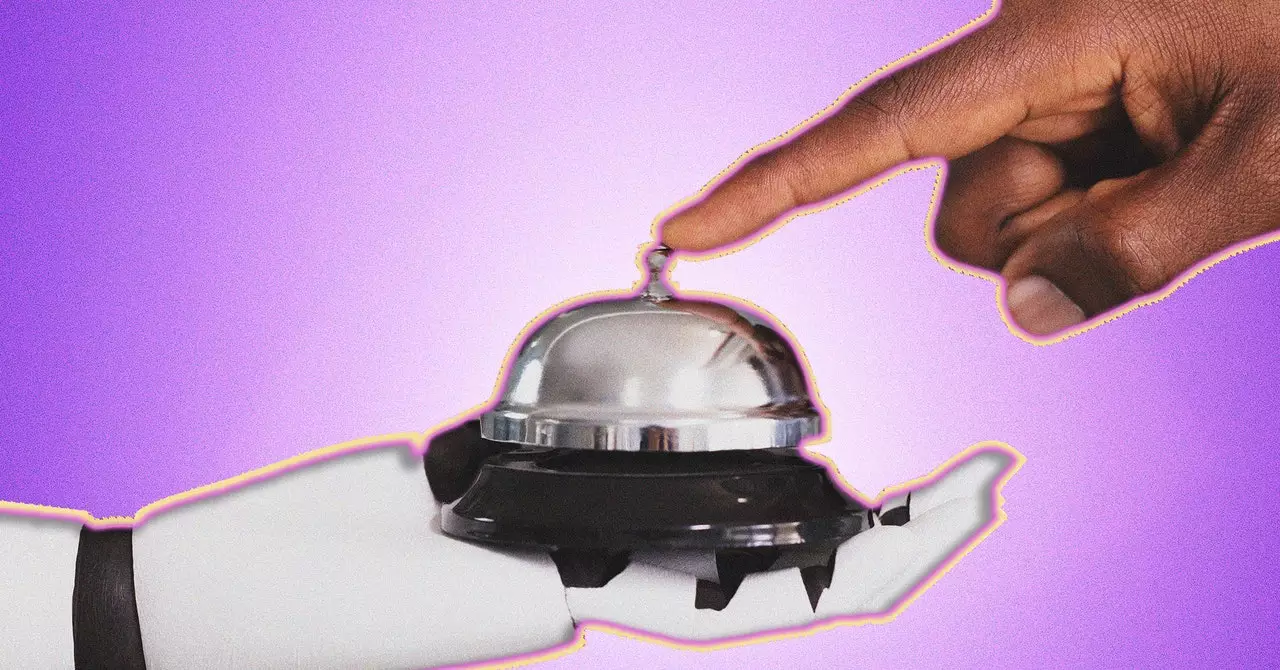As technology continues to evolve, the restaurant industry is undergoing a significant transformation, particularly in how it manages customer service. The introduction of AI-driven voice assistants in restaurants marks a revolutionary shift in operational efficiency and customer interaction. With numerous startups emerging to fill the gap, it’s clear that the integration of artificial intelligence into hospitality is no longer just a futuristic concept—it’s a burgeoning reality.
Imagine calling your favorite restaurant and being greeted by a friendly, professional voice that swiftly handles your inquiries. Welcome to the world of AI voice assistants, where systems like Maitre-D AI and RestoHost are setting new standards for customer engagement in restaurants. These AI entities aim to streamline the process of managing customer queries, reservations, and more, allowing human staff to focus on enhancing the dining experience for guests.
The advent of this technology in several major U.S. cities—such as San Francisco, New York, and Atlanta—highlights the growing reliance on AI in customer interaction. These virtual hosts can address a myriad of inquiries, from basic questions about menu items to guiding customers through the reservation process. The efficiency of these systems promises to change the landscape of restaurant operations fundamentally.
Despite the prevalence of online reservation systems and food delivery apps, many customers still prefer making a phone call to a restaurant. This trend raises the question: why do customers opt for the traditional phone call in an increasingly digital world? According to industry professionals, certain demographics still gravitate towards calling—especially older individuals, last-minute diners, and tourists unfamiliar with the restaurant landscape. This demographic diversity illustrates an enduring need for direct human interaction that can sometimes feel lost in the digital vermin of modernity.
Restaurants report receiving an astonishing volume of phone calls, often ranging from 800 to 1,000 per month for popular locations. During peak hours, as the phone continues to ring, valuable time is consumed dealing with repetitive inquiries that could otherwise be automated. This high call volume underscores the necessity for AI voice hosts, which can filter and manage these communications without burdening the staff or interrupting the dining experience.
While the charm of a friendly voice can initially woo customers, the technology behind these AI hosts is the true game-changer. The platforms being deployed—such as those from Slang and Newo—utilize advanced algorithms designed to understand and respond to customer inquiries with remarkable accuracy. Not only can these systems manage reservations, but they also adapt to individual restaurant policies and preferences, providing a personalized experience that reflects the brand’s identity.
Furthermore, the addition of multi-language capabilities expands their usability, catering to diverse customer bases in metropolitan regions. This versatility positions AI voice hosts as an attractive solution for restaurants looking to enhance their customer service capabilities while minimizing human error and miscommunication.
The potential for AI technology to transform the restaurant industry seems boundless. As more restaurants begin to adopt AI voice hosts, the platform will likely continue to evolve, introducing features aimed at improving customer engagement even further. These innovations might include personalized recommendations based on past dining history, real-time updates on wait times, and menu specials tailored to individual preferences.
It’s equally essential to recognize the implications of this shift on employment within the hospitality sector. As AI assumes routine tasks, many worry about job displacement. However, it also opens up opportunities for restaurant staff to focus on higher-level engagements, such as crafting memorable dining experiences and building rapport with customers.
The fusion of AI in restaurant operations exemplifies the ongoing evolution of customer service within the hospitality industry. By streamlining processes and managing customer expectations, AI voice assistants like Maitre-D and RestoHost empower restaurants to enhance their service without sacrificing the personal touch that makes dining special. While the shifts in employee roles create challenges, they also present exciting opportunities for the industry to redefine what exceptional guest experiences can be. As technology continues to reshape our world, the question remains—how will the restaurant industry continue to evolve in response?


Leave a Reply